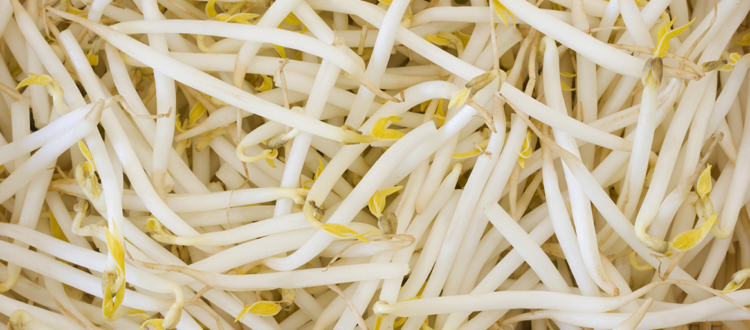
Outbreaks of food-borne illness both in Australia and overseas have been associated with eating seed sprouts. Most seed sprouts are consumed raw, therefore do not receive any form of heat treatment prior to consumption which would inactivate pathogens (if present). A 2005 Salmonella outbreak in WA of 125 cases was linked to alfalfa sprouts and a 2006 Salmonella outbreak of 15 cases in Victoria was linked to alfalfa sprouts.
To eat bean sprouts safely adhere to the use by date displayed on seed sprout packaging and follow storage directions on the seed sprout packaging and store seed sprouts at 5ºC or below. Avoid cross contamination from other risky foods such as meat or poultry. Washing sprouts has been found to be not very effective as laboratory studies have shown that bacteria can be internalised in the sprouts, making it difficult wash off/sanitise, and bacteria can be protected in a biofilm on the sprout surface. People in the 4 vulnerable demographics (young children, people 70+, immune-compromised or pregnant) should not eat uncooked sprouts of any kind, raw or lightly-cooked eggs, or other foods prey to listeria such as paté. or soft cheeses. See more food safety advice on fruit and vegetables.
